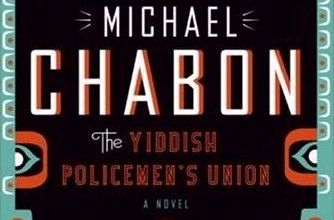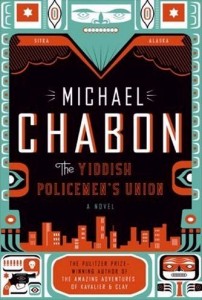#21 The Yiddish Policemen’s Union, Michael Chabon

 It would be churlish to start with a complaint, but I am a churl.
It would be churlish to start with a complaint, but I am a churl.
The only problem with this book, for me, was that it piled so many larger than life characters into the narrative that by the time we meet possibly the ultimate (or he may be the penultimate, if you consider unveiling a murderer to be the ultimate) larger than life character (who is, paradoxically, smaller than life – the Tlingit chief Willie Dick) I was actually mythic-ed out.
That said, if anybody ever asks me how to create a world I will send them to this book. Chabon crafts a complete, complex, collapsing, utterly real alternate world in which millions of Jews were sent to Sitka, not the death camps – a not-so-safe haven which is now faltering its way to failure. In the last days of the last place – as the ‘frozen chosen’ desperately seek relatives to rehome them in places as wildly unlikely as Madagascar – a man is murdered.
This is the starting point for a failed love story, a crime noir, a cast of mythically heroic characters (did I mention them already? A chess prodigy with healing hands, a Jewish/native giant, a hardboiled soft-hearted police chief who just happens to be female and just happens to be our protagonist’s ex-wife, the protagonist himself, boozy, bleary but still able to recognise both criminal and despicable behaviour and distinguish between them) who interact in a corps de ballet that suggests Chabon is at least as good a choreographer as he is world-builder.
Towards the end it, or I, came a little unstuck – either the Messianic plot or the endless jetés of the cast began to pall. Perhaps I was too busy looking at the footwork. What never fails is the voice of the protagonist, Meyer Landsman – detective, failed husband, difficult friend, member of the Yiddish Policemen’s Union.
It’s a dazzlingly good novel though – written with love and warmth not only for the characters but for the genres it mines and for the uberworld it creates. It is my first Chabon but it will not be my last. A final note of pure praise – Chabon is smart enough not to put women at the centre of this big book, but the women on the sidelines are real women: Bina, Meyer’s ex-wife is real, rugged and believable, the pie-man’s sad daughter is as mythic as any Jewish/Tlingit giant and Meyer’s sister, whom we know only by sidelight and memory, is emblematic of a certain kind of honour and a damaged kind of pride. For the women alone, this book deserves to be read, and the women are just a small part of what makes it such a great read.


Recent Comments